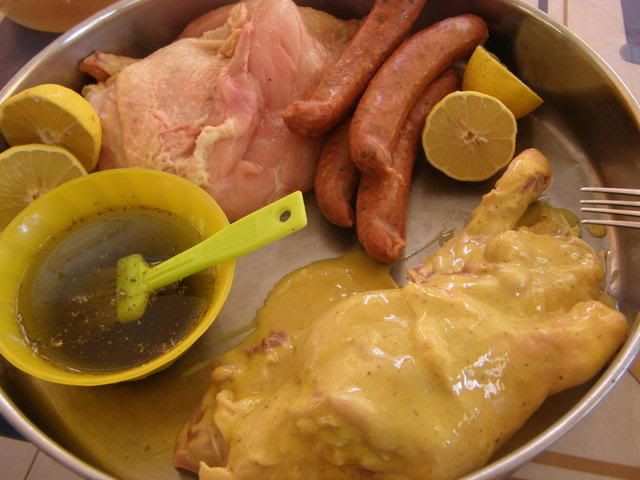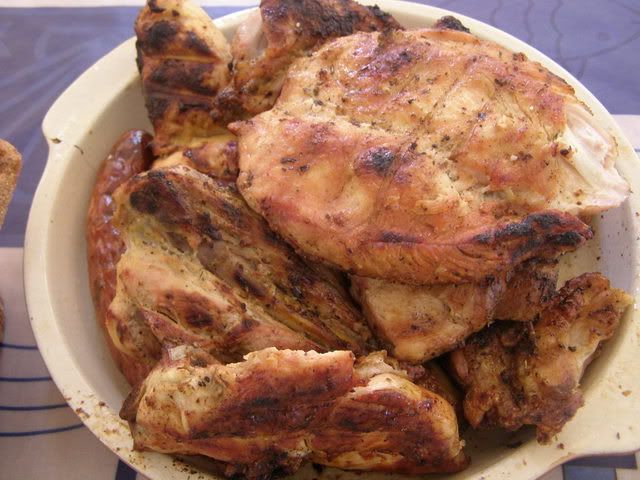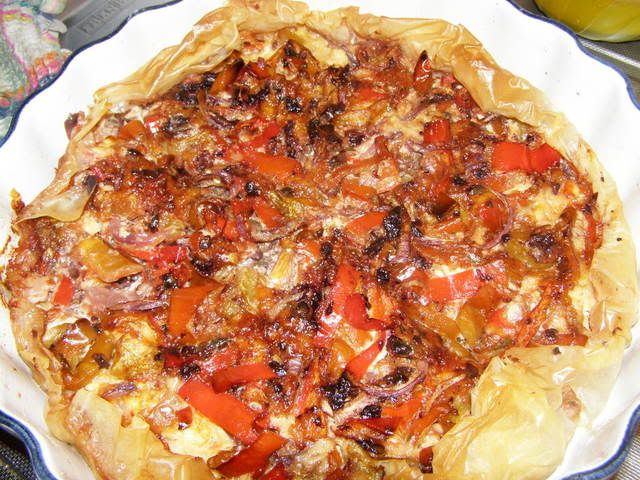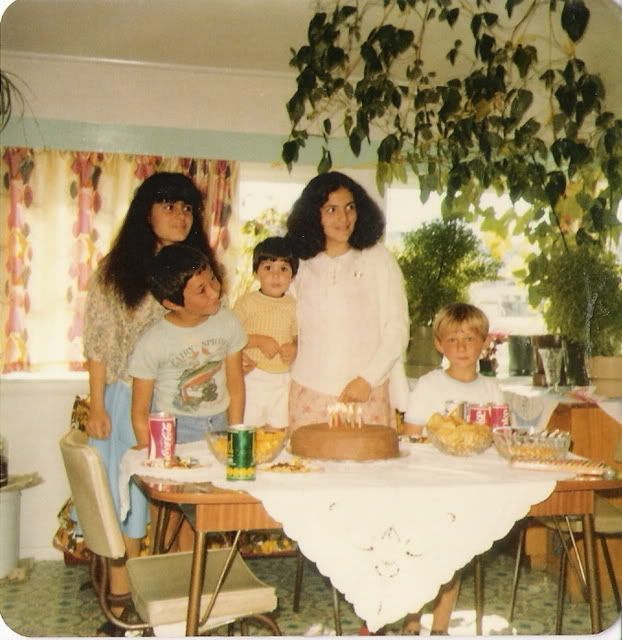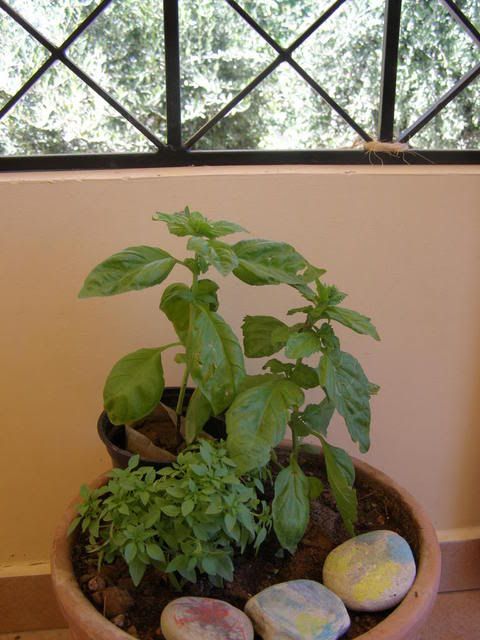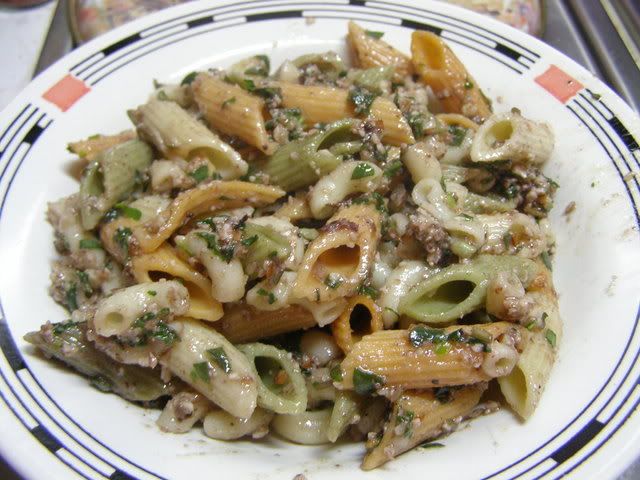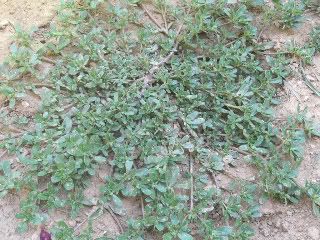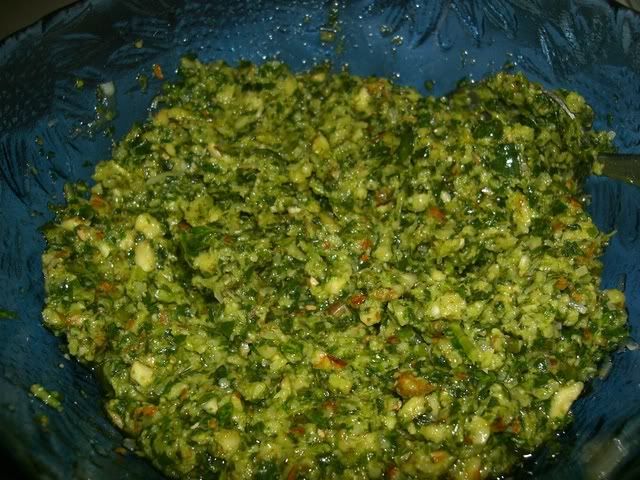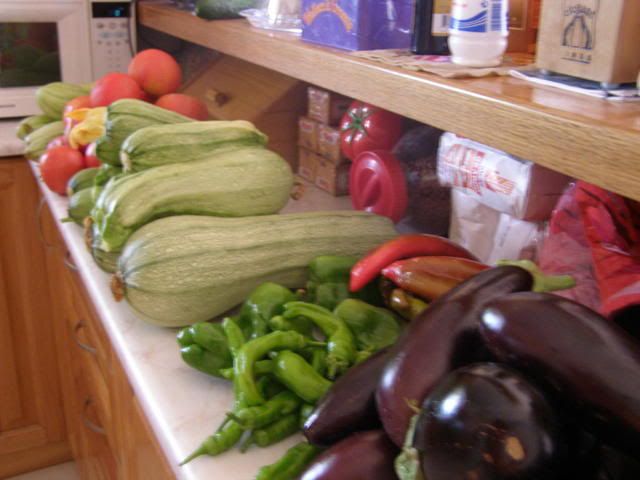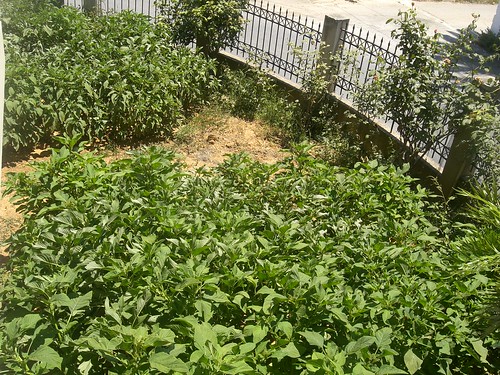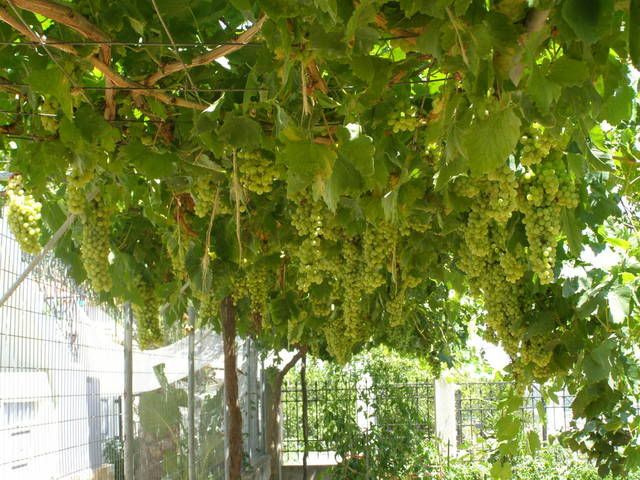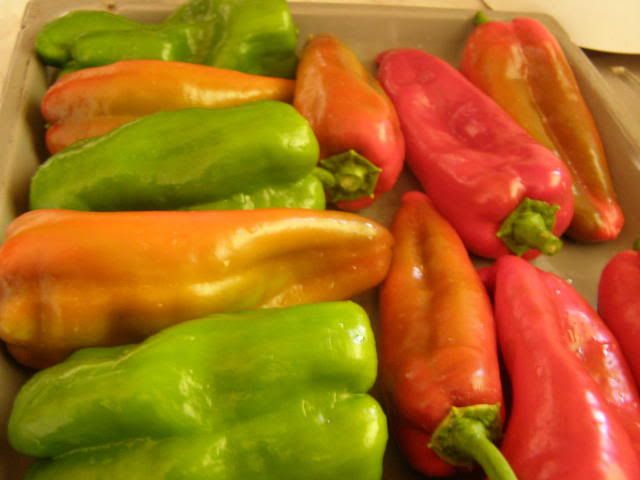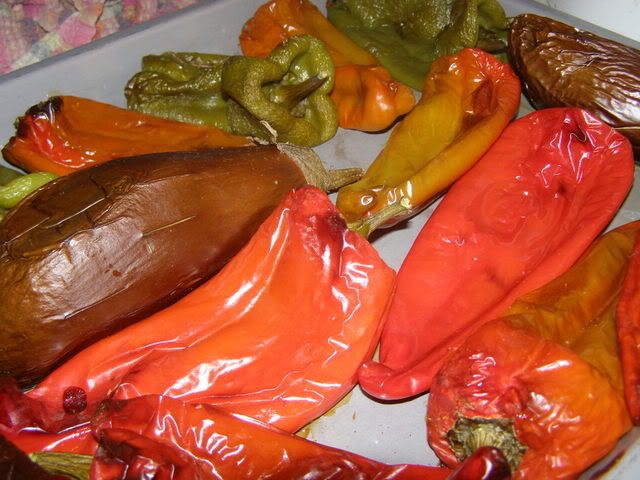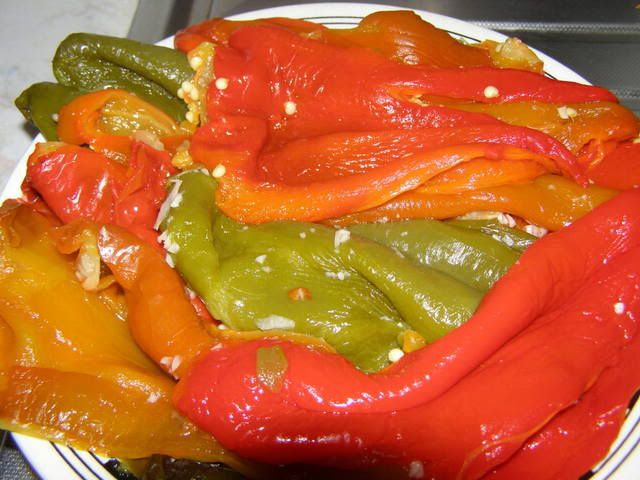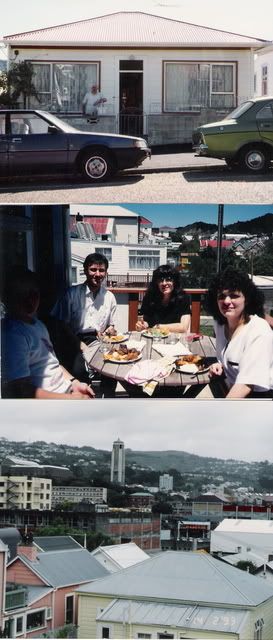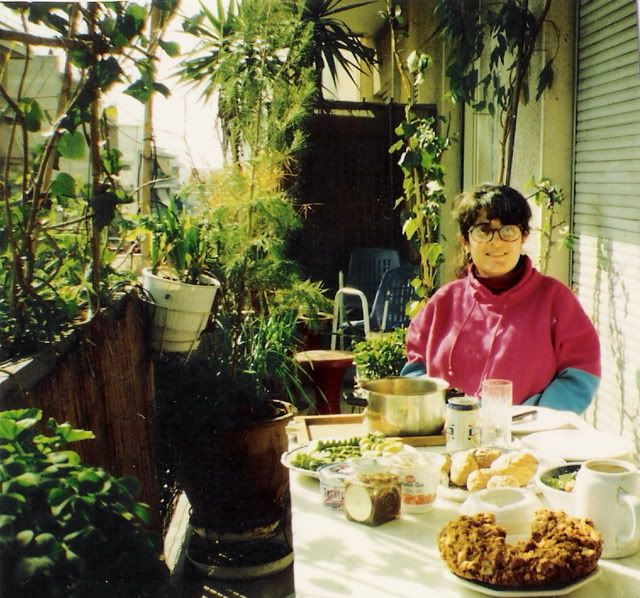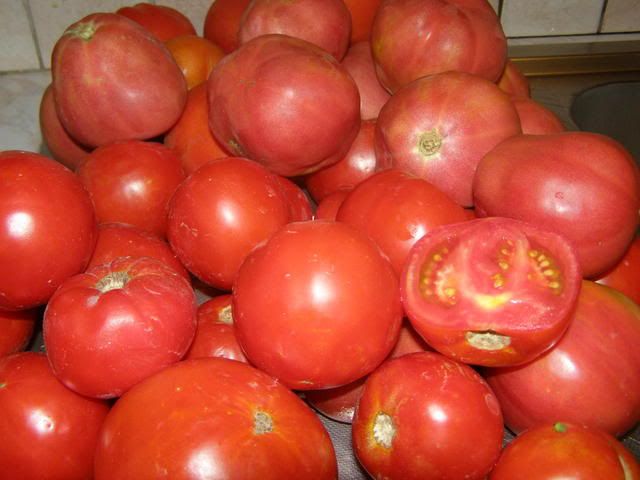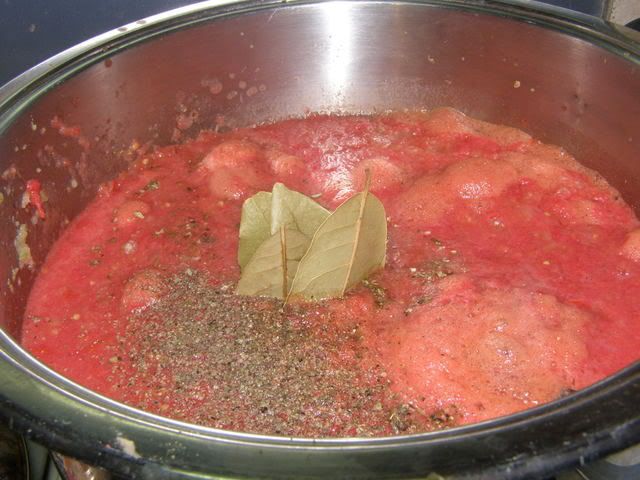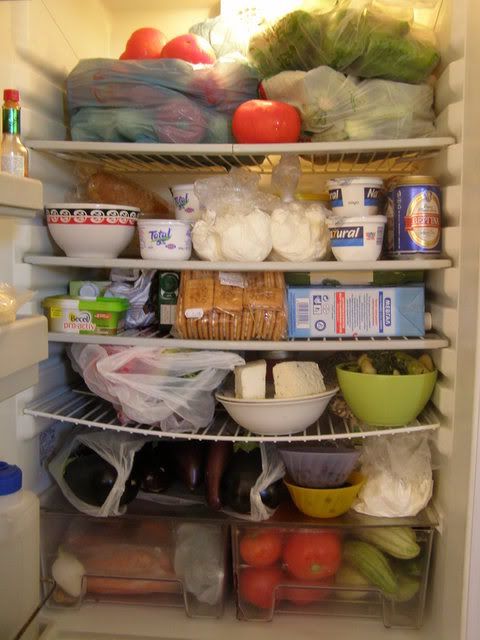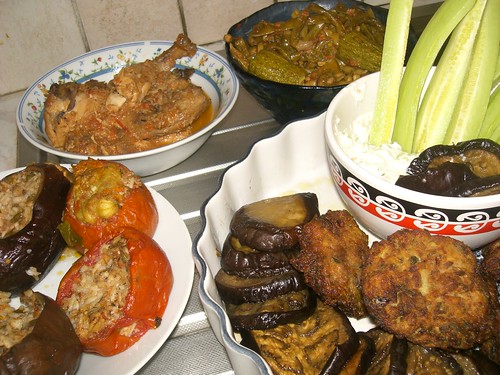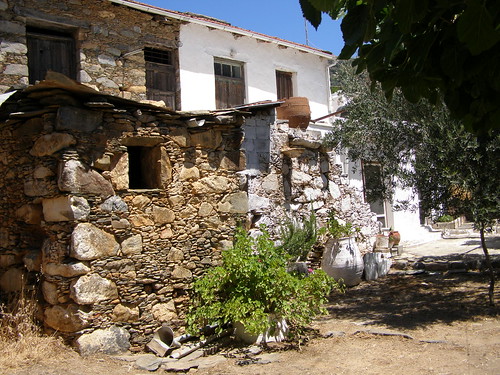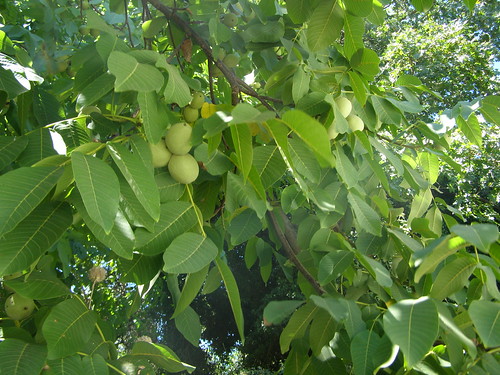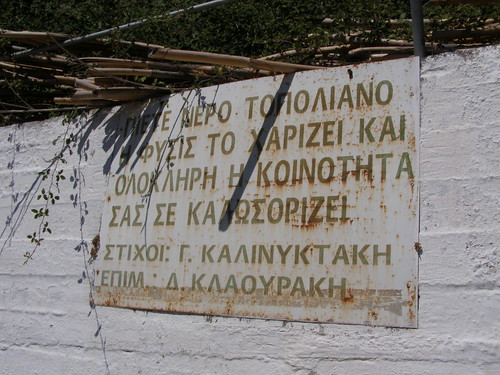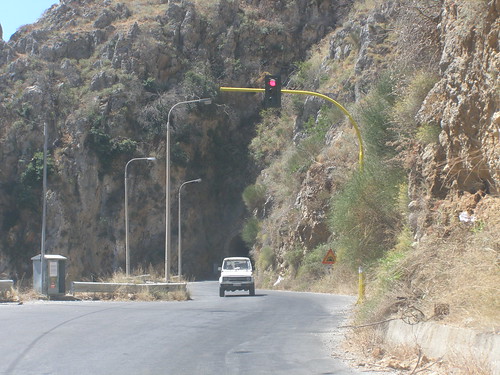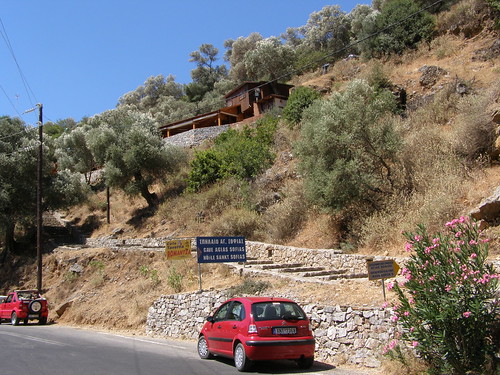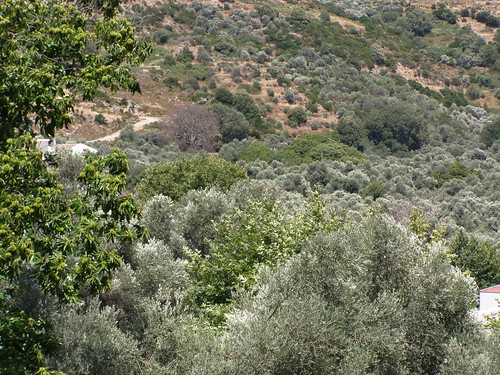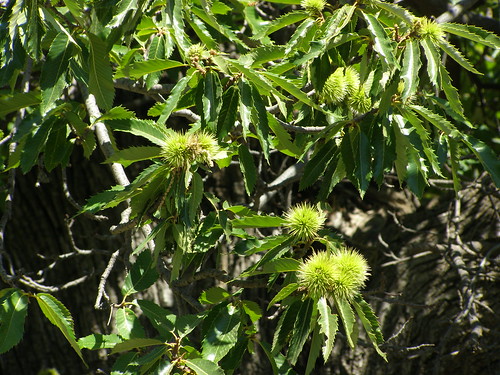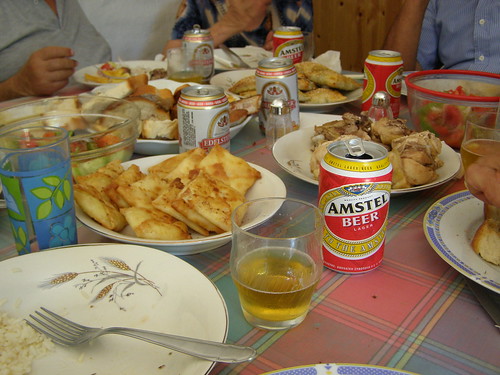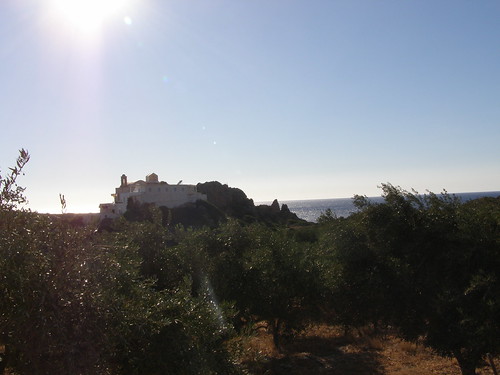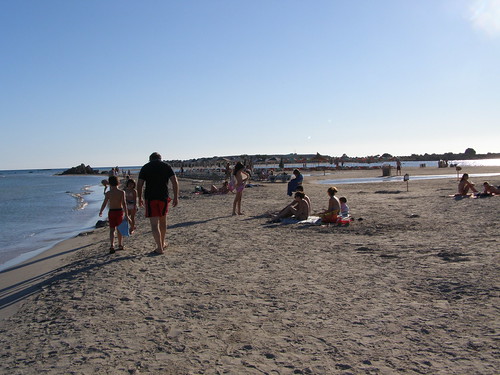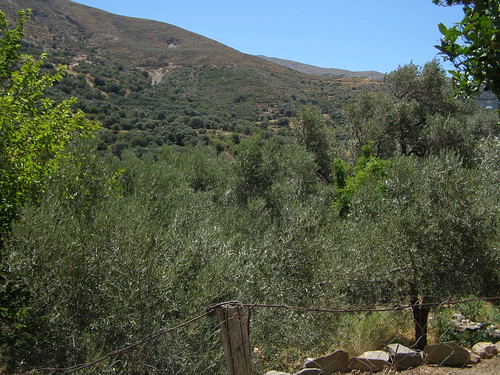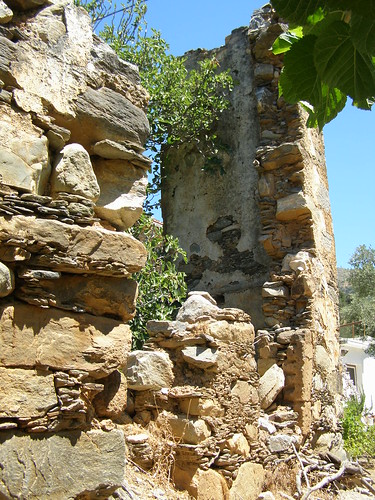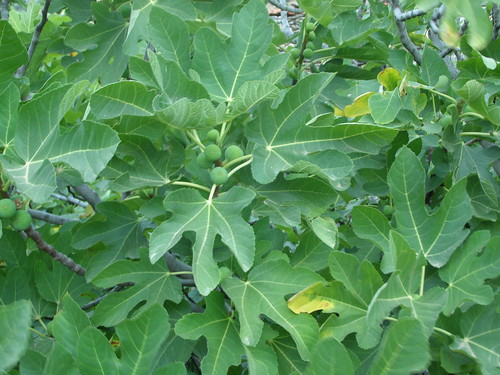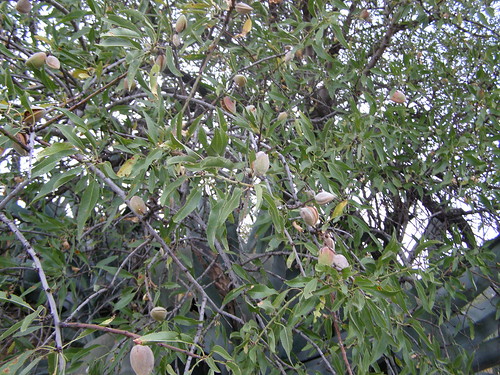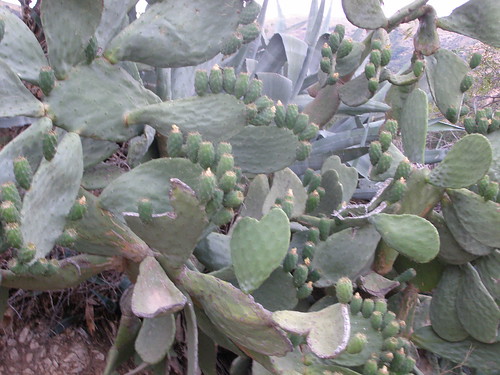The beach is one of my favorite places to play in, pretending to be a pirate hiding treasure or looking out for other pirates who want to ransack my deserted island. But I don't really care about swimming. Mum says she doesn't want us to miss out on learning to swim like she did, but I think I take after her; it doesn't look like I'll be learning to swim very quickly either. Some people are just not made for water. I hate it when water seeps up my nose. So you can imagine how glad I was when a couple of days ago the weather was so windy that the beach pool was bulging with frothy waves and the lessons were cancelled.
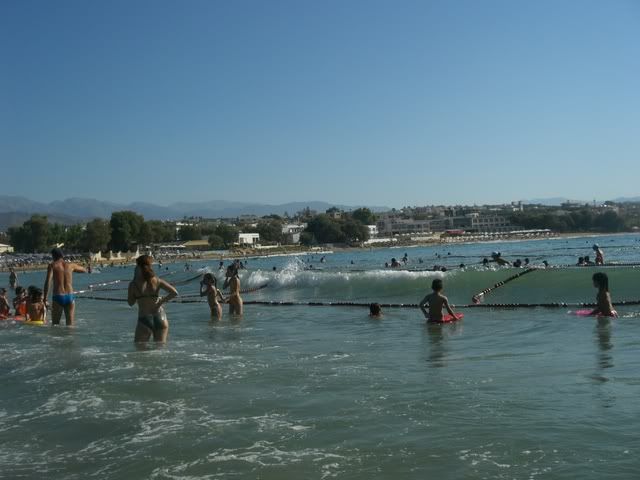
After school broke up for the summer, we've never stayed at home in the afternoon since those swimming lessons started. We were at a loose end that day when it was too cold to go swimming. The sun was shining, but the wind was tipping the chairs over on the balcony and we couldn't sit outside. The house hadn't cooled down enough to sit outdoors.
"What shall we do instead?" she asked us. She's always taken a democratic view in our leisure choices, but always seems to get us to do things she wants us to do anyway. Christine wanted to go horse-riding: 'it's too late in the afternoon"; I wanted to go to the water slide park: 'if it's windy here, they're going through a hurricane".
"How about a trip into Hania to see your favorite paediatrician?" she suggested. That's where she wanted to go, so we agreed with her, otherwise, she might not have taken us anywhere. We knew we were up for our last vaccination, and we wanted to get it over and done with too. I only felt a little sting in the beginning but after that, I didn't feel anything. Christine tried to run away at one point; I wonder what she's going to do when she gets her tuberculosis vaccination at school next year.
"Isn't it too windy to go to Hania, too?" I asked. Dad always checks the weather before we go out. "Wear a jacket," she replied. But no one else was wearing one, so I didn't take one either. She'd make me carry it if I ended up taking it off in town. But when we left the doctor's, the wind was still quite strong. "I'm cold," Christine said, hugging her arms, but she was laughing.
"I love this weather," Mum said. She never wears a jacket, but never complains about the weather. I suppose it felt better than the feeling you get when the sun is too bright and it's burning down on you. As we walked towards the town, I noticed I didn't sweat. I was beginning to see why Mum liked this weather. My body felt much lighter than it did during the day, and I didn't have that sticky feeling on my skin.
"Now that we're in Hania, would you like to have something to eat in town?" I knew she'd take us out for the meal of our choice. That's what I like about Mum: she knows we don't want to eat at a sit-down taverna which serves all those meals she makes at home. Neither does she, in any case. We chose Goody's because with each happy meal they give you a toy.
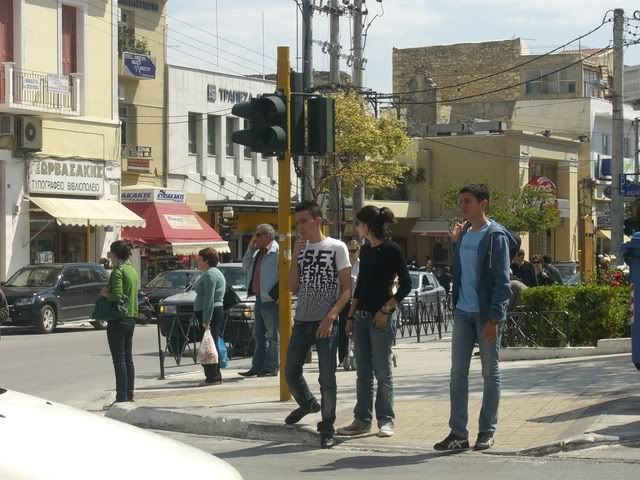
Mum ordered our happy meals: a hamburger, some chips and a soft drink. "Aren't you having anything for yourself, Mum?" I asked her. "I wish you'd eat everything so that I didn't have to eat your leftovers." We never eat it all, probably because it isn't like the food we eat at home, all home-made. Mum hates throwing away food, so she never orders anything for herself. I got a Ninja turtle figurine in my meal, while Christine got a bracelet with pink light-up hearts.
When we left Goody's, it was already dark, and there was a lot of traffic on the road. I've never seen so many cars on the road before; where were they going with all their lights lit up?
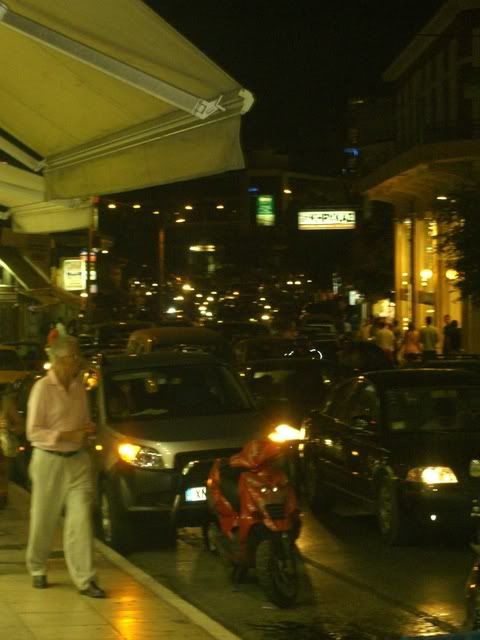
"Where are they all going, Mum?" we asked.
"Out for fun," she replied.
"Where?"
"Anywhere, wherever there's something to do."
"Can we go where they're going, too?"
"You're already there," she replied.
Sometimes she likes to be secretive and get us to work out the answer. She says it helps us to become cleverer. I think she just likes to tire us out.
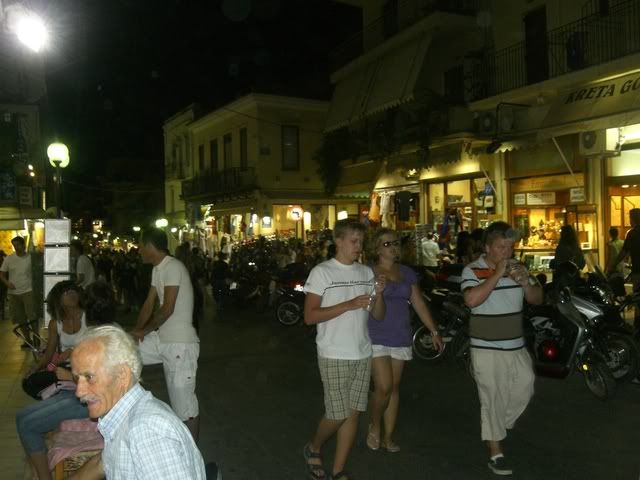
Summertime. The tourists in their rental cars. The Athenians in their jeeps. The locals jostling for space among the foreigners. Walkers get to their destination faster than drivers. We were standing opposite the taxi stand.
"Shall we check whether Dad's there?" she asked us.
"There he goes!" Christine shouted.
"That's a TOYOTA," I told her. "The SKODA's behind it," I pointed out.
"Is that Dad's taxi?" Christine asked me.
"No," Mum cut in. "Did you notice the licence plate?"
We didn't know it in the first place, so Mum told us to remember to look at it the next time the taxi was parked in the garage.
"Do you know it, Mum?"
"Of course; that's how I recognise Dad's taxis from the others."
She's right again. All the SKODA's looked the same to us too, except that some had more scratches than others.
There was music coming from the park next to the taxi rank. People who looked very different from us were wearing feathers in their long black hair, singing and dancing. We thought they were Indians. Mum told us they were from South America. We watched them perform some songs and dances, then Mum gave us money to throw into their collection box. "Time to go," she told us, which was a pity, because we were quite comfortable sitting on the ground with all the other people who also looked very different from us - they had blonde hair, pale faces and very red skin from sitting in the sun too long.
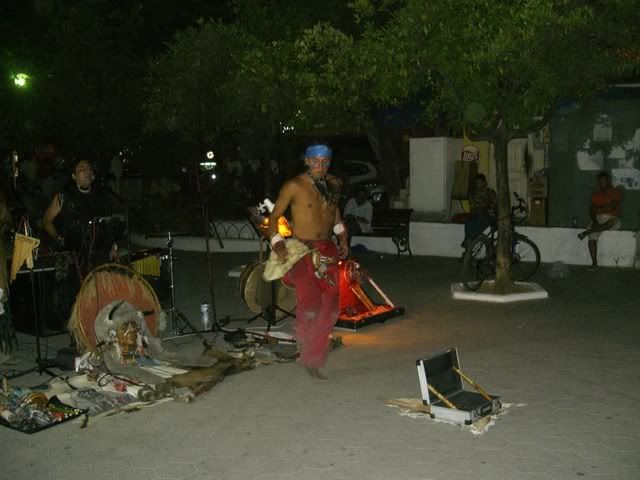
We walked on to the corner. Now the road was crowded with people and lights from the shops.
"Where are we going, Mum?" Silly question, she wasn't going to tell us. But I thought I recognised the street. Could this be...? I still wasn't sure which road it was. Suitcases. Swimsuits. People. Towels. Glasses. So many people. Cats. Glass cats in all colours. Could this be a toy shop?
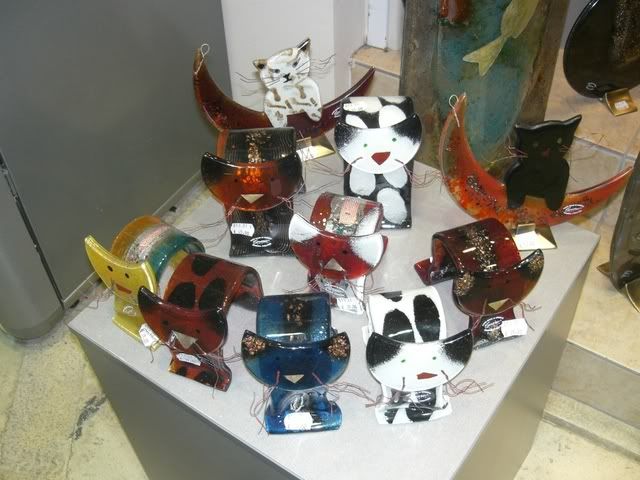
"Shall we go inside and have a look, Mum?"
"Don't touch anything!" is all she said, diverting us to the opposite side of the street.
Gold. Silver. Pretty rings. Hats. Horses. Carriages. More people.
"Can we ride on one of those one day?"
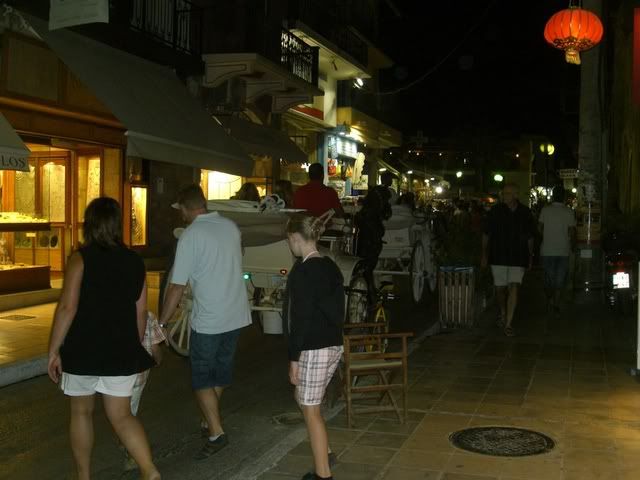
Mum smiled at us. I knew what she was thinking: we don't need to take a horse and carriage, because we have a car and a taxi. That's why we don't use public transport, either. But I'd like to ride on a bus one day. I asked Mum if we could take a bus into town one day. She told me that even if we did catch a bus from the main road into town, we'd have to walk up the hill when we returned home. I agreed with her that it wouldn't be a good idea to take the bus. Who wants to walk up the hill under the hot sun breaking out in sweat?
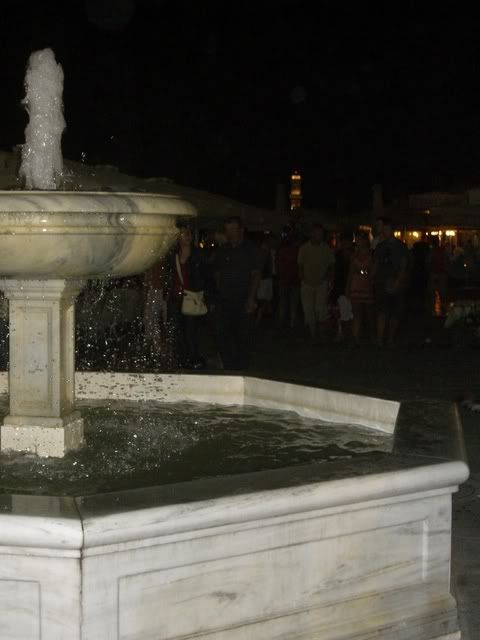
Sweets. Bottles. People wearing shorts and sandals. They looked like they had just come from the beach. Chairs. Music. People sitting at cafes. People walking. A fountain!
"What's behind the fountain?" Mum asked us.
What was behind the fountain? There were too many people to see anything distinctive. A light. The lighthouse. The lighthouse!
"O faros!" Christine and I shouted out the answer together. We knew that's what Mum wanted us to say. We were at the old port.
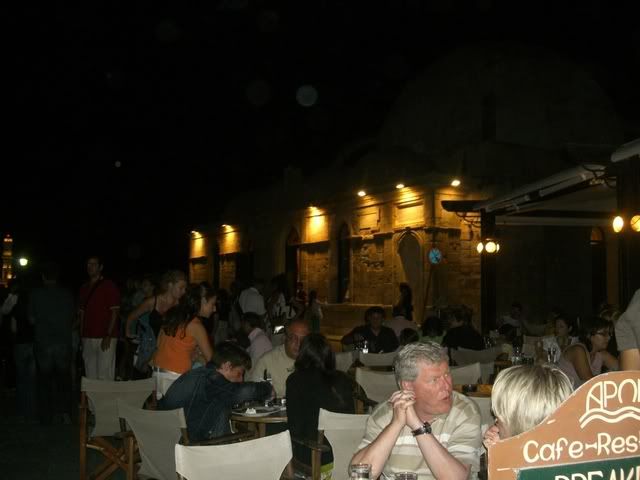
"Are we going to sit down?" Everyone else seemed to be sitting down or looking for a seat.
"Let's take a walk ...," Mum insisted, while we moaned.
"... and then we'll have---"
"ICE CREAM!" Christine and I shouted together.

So we walked around the harbour a little while to make Mum happy until we got tired and Mum thought we were going to fall into in the water. We turned back up Halydon St and she bought us our ice-cream. We were very tired by the end of the night, but the whole adventure had been a wonderful staycation. I wish we could take a bus back to the car. Or at least see Dad at the taxi stand so he could drive us back.
©All Rights Reserved/Organically cooked. No part of this blog may be reproduced and/or copied by any means without prior consent from Maria Verivaki.
